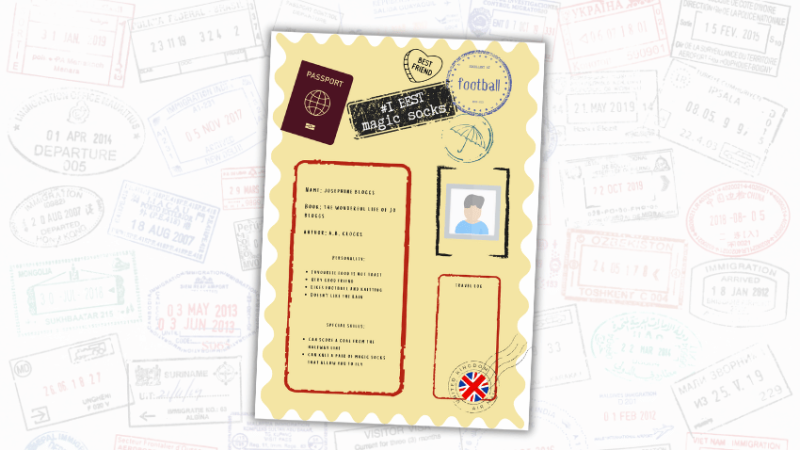Prepositional phrases – 7 of the best worksheets and resources for KS2 SPaG
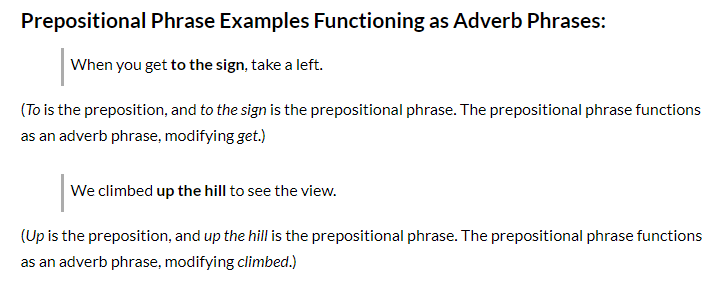
Give your primary pupils the best start in using prepositions in prepositional phrases with these resources, worksheets and activity ideas…

- by Teachwire
- Classroom expertise and free resources for teachers

What is a preposition?
According to the Cambridge dictionary, a preposition is “a word that is used before a noun, a noun phrase, or a pronoun, connecting it to another word”.
Sadly, this definition is probably of little use to children, so they may need to see them in context to fully understand.
The School Run explains that prepositions are “linking words in a sentence” and that “We use prepositions to explain where things are in time or space.
“Prepositions tell us where something is (for example, beside, under, on, against, beneath or over) or when something is happening (for example: until, during, after, before or more specifically ‘on Christmas Day’, ‘at 12 o’clock’ or ‘in August’).
Preposition examples
The School Run entry above also features a preposition list of some of the most commonly used ones in English:
- about
- above
- after
- against
- as
- at
- before
- behind
- below
- beside
- between
- but
- by
- down
- during
- except
- for
- from
- in
- inside
- into
- of
- off
- on
- over
- than
- through
- to
- under
- until
- up
- with
What is a prepositional phrase?
A prepositional phrase is made up of a preposition, its object, and any other words that might further describe that object.
There are two main kinds of prepositional phrase:
- Adverbial phrases: This is where the prepositional phrase modifies a verb
- Adjectival phrases: This is where the prepositional phrase modifies a noun
Prepositional phrase examples
- We got here as fast as we could.
- The tiger behind the tree.
- The house on the hill.
- She put her gloves in her pockets.
1 | Prepositional phrases
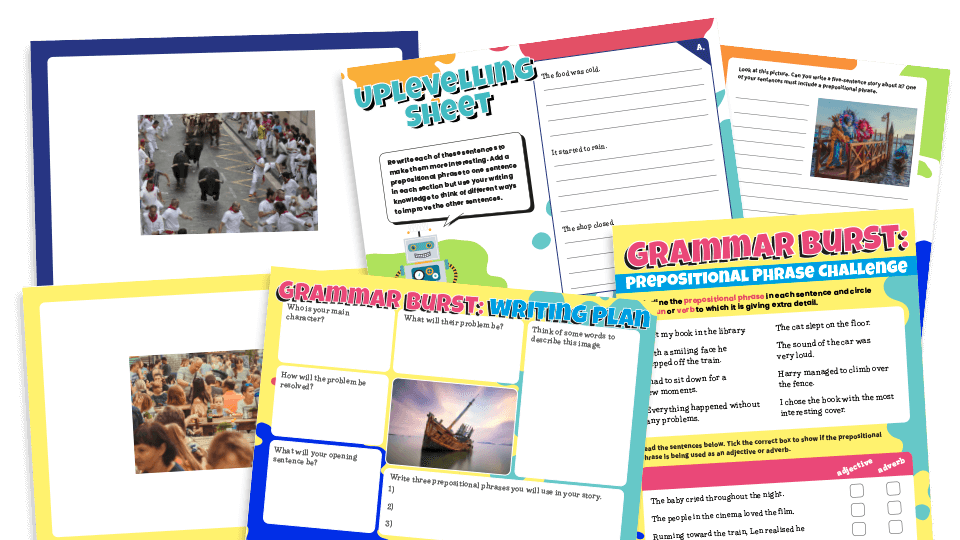
This Lower Key Stage 2 grammar resource provides everything you need to teach five 15-minute lessons on prepositional phrases.
As well as learning how to identify prepositional phrases and explain their use, children are challenged to come up with creative responses in their writing to this area of grammar, with colourful images included to help inspire their work.
The five SPaG lessons are designed to be taught across one week. Alternatively, you may wish to teach the sessions in larger chunks, spread over a longer period of time, or intersperse them with different grammar, punctuation and spelling lessons.
The resources included in this pack are a PowerPoint, a prepositional phrases worksheet, prepositional phrase cards, a writing plan and an uplevelling writing worksheet.
2 | Prepositional phrases video guide
Give students a short visual guide to watch with this Khan Academy video that introduces the concept of prepositional phrases.
Watch it above, or on their YouTube channel, here.
3 | KS2 Adverbial Phrases – Model Sentences for Reference, Display and Activities
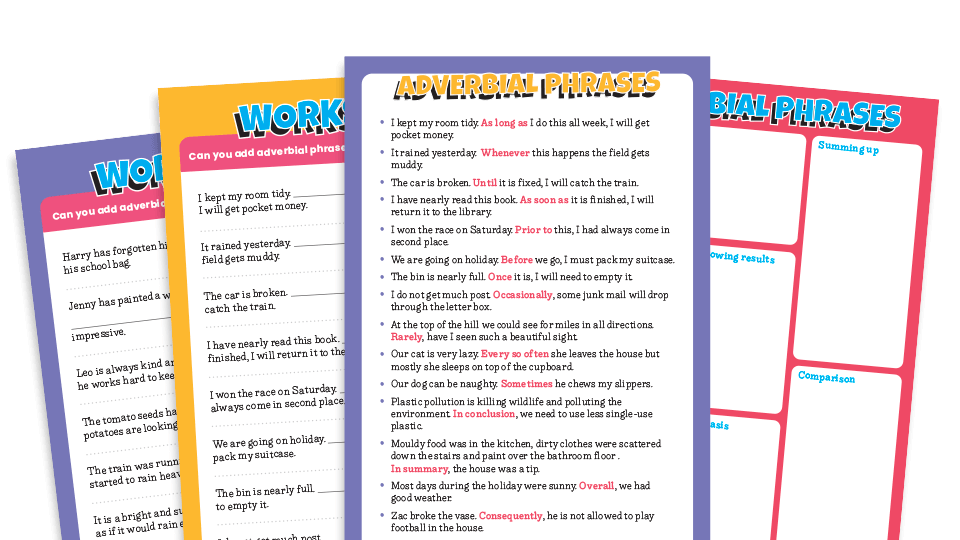
This KS2 grammar resources features a wide range of sentences using adverbial phrases for connection, which children in Year 3 and 4 can use as models for their own writing.
Because they are not all fronted adverbials, the sentences will be useful for children in Year 5 and 6, too.
The sentences are available in two versions:
- For the table – pupil reference sheets show all of the model sentences on 2 mats which can be kept on tables and referred to during lessons. Additional versions are provided which separate the sentences into easily trimmable columns. This enables you to provide a pupil with a smaller group of phrases at a time.
- For display – the sentences are presented at a larger size so they can be used as part of a wall display.
4 | Prepositional phrase examples

This list here neatly separates the prepositional phrases into commonly used (eg ‘around the world’, ‘off the top’), ones acting as adverbs (‘The present inside the big box is mine’) and ones acting as adverbs (‘Our team won against all odds‘).
5 | Prepositional phrase examples and explanations

Another handy list, this one includes short explanations as to what the prepositional phrase in each sentence is.
6 | Year 5 adverbial phrases sentence builder game
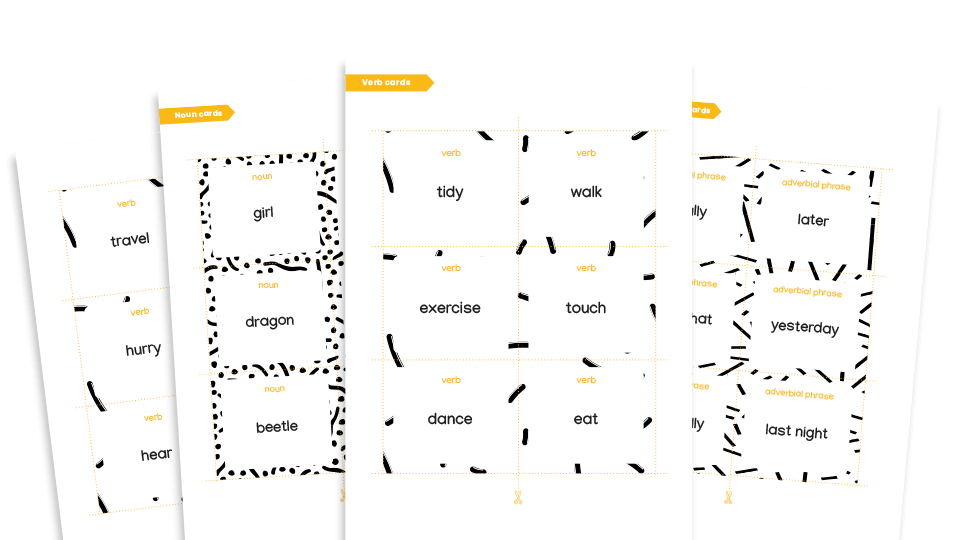
Use this sentence builder Game to develop Year 5 pupils’ use of adverbials in their sentences.
They will do this by: understanding what an adverbial or adverbial phrase is; and understanding how this can be positioned in different places within a sentence.
Pupils will use the noun, verb and adverbial phrase cards to create sentences, rehearsing them orally before writing.
The grammar game will also give pupils the opportunity to use and understand the year 5 grammar terminology in English appendix 2 when discussing their sentences.
7 | Year 6 adverbial phrase story starters worksheet
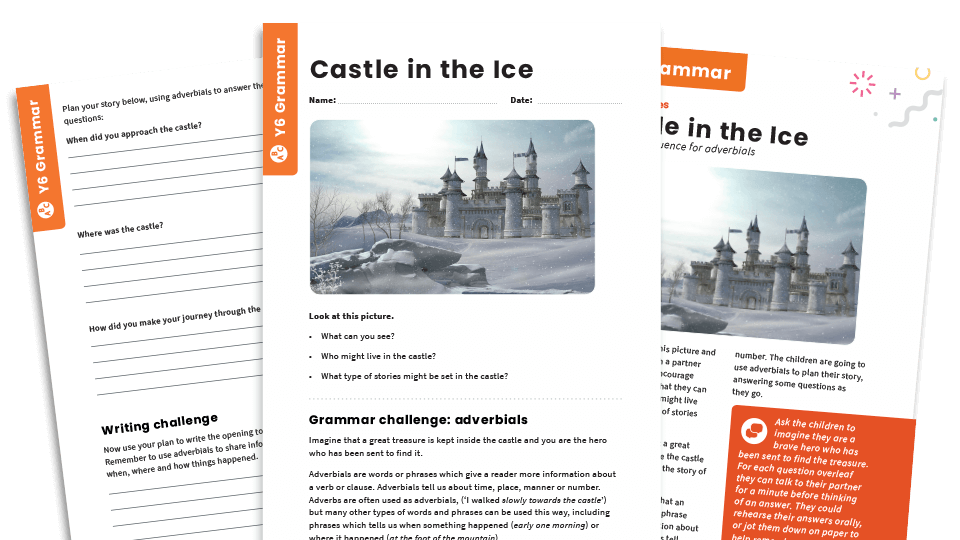
This adverbial phrase worksheet has been designed to help children revisit and recall adverbials in KS2 – a key grammatical concept from the National Curriculum programme of study for Year 6.
The session provides a motivating and memorable image to stimulate discussion, before introducing adverbials. Children have time to practise using this feature, before undertaking a short writing task to apply what they have learnt in the context of creative writing.



